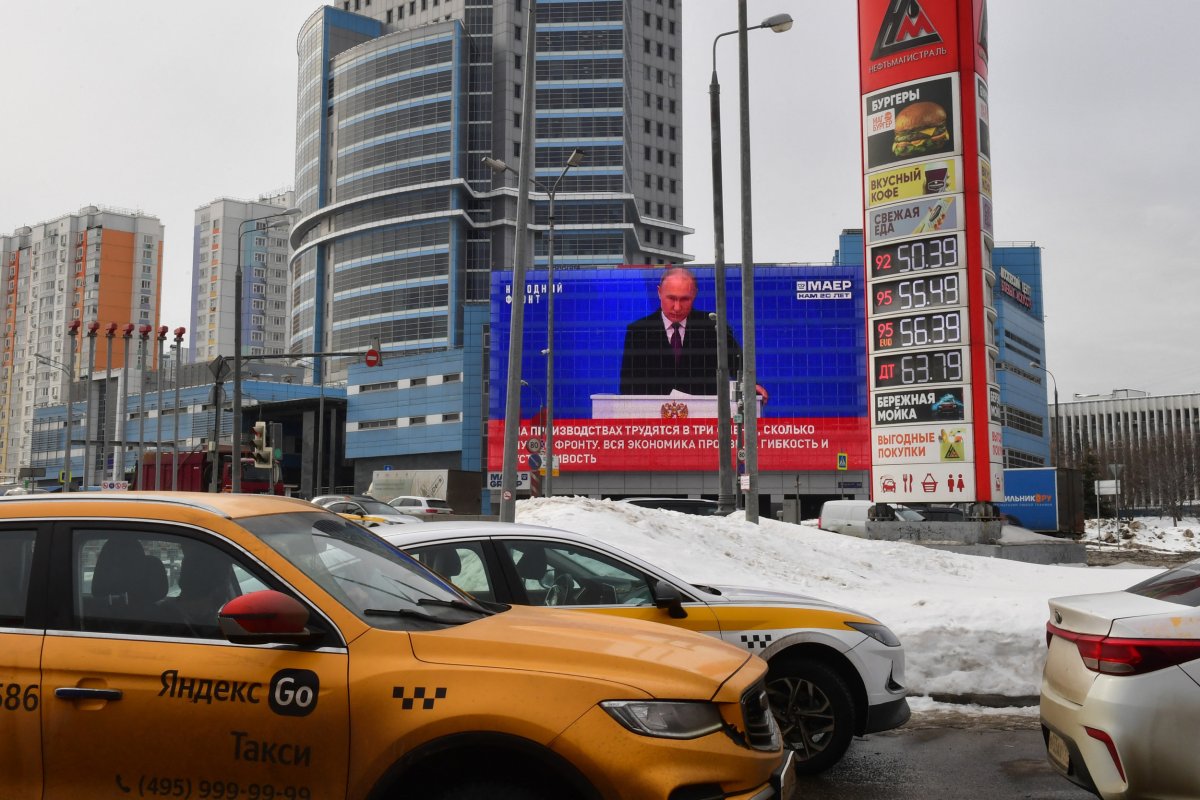Motorists in Russia are having to pay more at the pump is rising as drone strikes on oil facilities affect gas prices, it has been reported.
During the war started by Vladimir Putin, numerous drone strikes have targeted infrastructure such as oil facilities in Russia some of which are hundreds of miles from the Ukrainian border.
Russian authorities have blamed the attacks on Ukraine, although Kyiv frequently does not claim responsibility for the strikes which hurt Moscow's war effort.

On Tuesday, a fire broke out at a Lukoil refinery in Nizhny Novgorod about 280 miles east of Moscow and an energy facility in the city of Oryol was also hit the same day.
The next day, drones hit refineries in Ryazan and Rostov-on-Don, according to Russian officials. Other oil facilities in the southern city of Volgograd and Tyapse as well as St Petersburg have also been targeted in recent weeks.
Citing an industry source, Russian business news outlet RBC reported that refineries being forced to suspend operations has caused fears in the balance of supply and demand, causing a rise in prices.
"The situation for the market is potentially serious, so buyers are insuring themselves by purchasing goods," the source said.
The price of AI-95 gasoline on the St. Petersburg International Mercantile Exchange exceeded 60,000 rubles ($657) per ton, going up on Wednesday by 1.88 percent.
This was the highest rise since September when gas prices had declined after a temporary embargo on fuel exports was ended. During that embargo, AI-95 gas prices hit a high of 76,876 rubles ($840) per ton on September 7.
Other types of fuel also rose in price on Wednesday with AI-92 gasoline going up by 1.31 percent to 48,182 rubles ($527) per ton and diesel fuel rising by 1.62 percent, to 61,791 rubles ($676) per ton, RBC reported.
The paper reported that damage to primary oil refining units will not just adversely impact the production of gasoline of various grades, but also lead to a decrease in diesel fuel.
However, Russia's energy ministry has played down gas price concerns. In a statement on Wednesday, it said that fuel prices on the forecourt were "stable...regardless of short-term fluctuations in the wholesale market."
The Russian government reintroduced on March 1 a six-month ban on gasoline exports which Russian Deputy Prime Minister Alexander Novak said would stabilize prices on the domestic market to deal with a spike in motorists' demand during spring and summer.
The Russian government implemented the same regulatory measure between September and November 2023.
Uncommon Knowledge
Newsweek is committed to challenging conventional wisdom and finding connections in the search for common ground.
Newsweek is committed to challenging conventional wisdom and finding connections in the search for common ground.
About the writer
Brendan Cole is a Newsweek Senior News Reporter based in London, UK. His focus is Russia and Ukraine, in particular ... Read more
To read how Newsweek uses AI as a newsroom tool, Click here.








